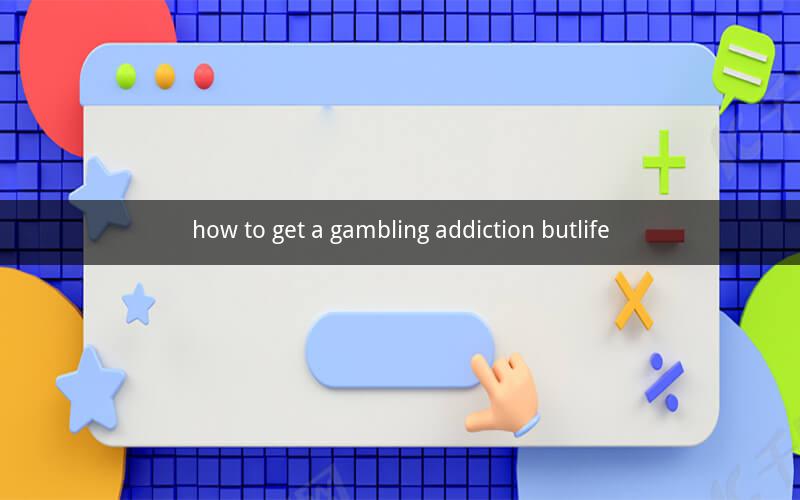
Contents
1. Introduction to Gambling Addiction
2. Understanding the Psychological Aspects of Addiction
3. The Social and Cultural Factors Influencing Gambling
4. Identifying the Signs of Gambling Addiction
5. The Role of Technology in Gambling Addiction
6. Treatment and Support for Gambling Addiction
7. Case Studies and Real-Life Experiences
8. Conclusion
1. Introduction to Gambling Addiction
Gambling addiction, also known as problem gambling or pathological gambling, is a behavioral disorder characterized by an uncontrollable urge to gamble, despite negative consequences. It affects individuals of all ages, genders, and socioeconomic backgrounds. The purpose of this article is to explore how one might get addicted to gambling and the implications of such an addiction on one's life.
2. Understanding the Psychological Aspects of Addiction
Gambling addiction often stems from underlying psychological factors. These include a need for excitement, a desire to escape reality, and a thrill of winning. Individuals who experience stress, anxiety, or depression may turn to gambling as a coping mechanism. The psychological aspects of addiction play a crucial role in the development and progression of the disorder.
3. The Social and Cultural Factors Influencing Gambling
Social and cultural factors can significantly influence an individual's likelihood of developing a gambling addiction. For instance, living in a region with a high prevalence of gambling activities, such as casinos or racetracks, can increase the exposure to gambling. Additionally, cultural beliefs and societal norms may encourage or discourage gambling behavior.
4. Identifying the Signs of Gambling Addiction
Recognizing the signs of gambling addiction is essential for early intervention and treatment. Common signs include:
- Inability to control gambling behavior
- Spending increasing amounts of time and money on gambling
- Lying about gambling activities
- Neglecting personal, family, and professional responsibilities
- Engaging in risky or desperate behavior to recover lost money
5. The Role of Technology in Gambling Addiction
The rise of technology has made gambling more accessible than ever before. Online casinos, mobile gambling apps, and virtual poker rooms have expanded the reach of gambling, making it easier for individuals to develop an addiction. The convenience and anonymity of online gambling can exacerbate the problem.
6. Treatment and Support for Gambling Addiction
Treating gambling addiction requires a comprehensive approach that addresses the psychological, social, and financial aspects of the disorder. Treatment options include:
- Cognitive-behavioral therapy (CBT)
- Support groups, such as Gamblers Anonymous
- Medication for co-occurring mental health disorders
- Financial counseling and debt management
7. Case Studies and Real-Life Experiences
To illustrate the impact of gambling addiction, let's look at a few case studies and real-life experiences:
- Case Study 1: A 35-year-old man develops a gambling addiction after experiencing a stressful period in his life. He loses his job, marriage, and home due to his addiction.
- Case Study 2: A 22-year-old woman starts gambling online as a form of entertainment. She soon becomes addicted, spending all her savings and borrowing money from friends and family.
- Real-Life Experience: A 50-year-old man shares his journey of overcoming a gambling addiction through therapy, support groups, and a commitment to change.
8. Conclusion
Gambling addiction is a complex disorder with far-reaching consequences. By understanding the psychological, social, and cultural factors that contribute to addiction, individuals can take steps to prevent and treat the disorder. Support and treatment are crucial in helping those affected by gambling addiction rebuild their lives.
Questions and Answers
1. What are the main psychological factors contributing to gambling addiction?
- The main psychological factors contributing to gambling addiction include the need for excitement, a desire to escape reality, and a thrill of winning.
2. How can social and cultural factors influence an individual's likelihood of developing a gambling addiction?
- Social and cultural factors, such as living in a region with a high prevalence of gambling activities and cultural beliefs about gambling, can significantly influence an individual's likelihood of developing a gambling addiction.
3. What are some common signs of gambling addiction?
- Common signs of gambling addiction include an inability to control gambling behavior, spending increasing amounts of time and money on gambling, lying about gambling activities, neglecting personal responsibilities, and engaging in risky behavior to recover lost money.
4. How has technology impacted gambling addiction?
- Technology has made gambling more accessible and convenient, which can exacerbate the problem by making it easier for individuals to develop an addiction.
5. What are some treatment options for gambling addiction?
- Treatment options for gambling addiction include cognitive-behavioral therapy, support groups, medication for co-occurring mental health disorders, and financial counseling.
6. What role do support groups play in the recovery process?
- Support groups, such as Gamblers Anonymous, provide a supportive environment for individuals struggling with gambling addiction to share their experiences, learn from others, and receive guidance from peers and professionals.
7. Can gambling addiction be cured?
- While there is no one-size-fits-all solution for gambling addiction, it is possible to overcome the disorder with the right treatment, support, and commitment to change.
8. How can family and friends help someone with a gambling addiction?
- Family and friends can help someone with a gambling addiction by offering support, encouraging them to seek treatment, and creating a supportive environment that promotes recovery.
9. Are there any legal consequences for gambling addiction?
- Legal consequences for gambling addiction are rare, as the disorder is considered a behavioral disorder rather than a criminal offense. However, individuals with gambling addiction may face legal consequences due to their behavior, such as fraud or theft.
10. How can one prevent gambling addiction?
- To prevent gambling addiction, individuals should be aware of the risks, set limits on their gambling activities, seek support from family and friends, and address underlying psychological factors.